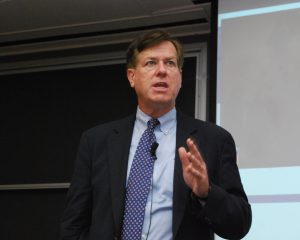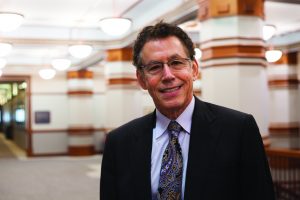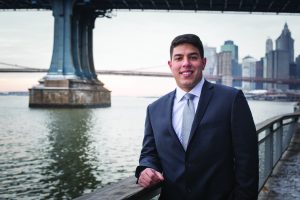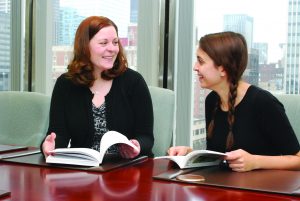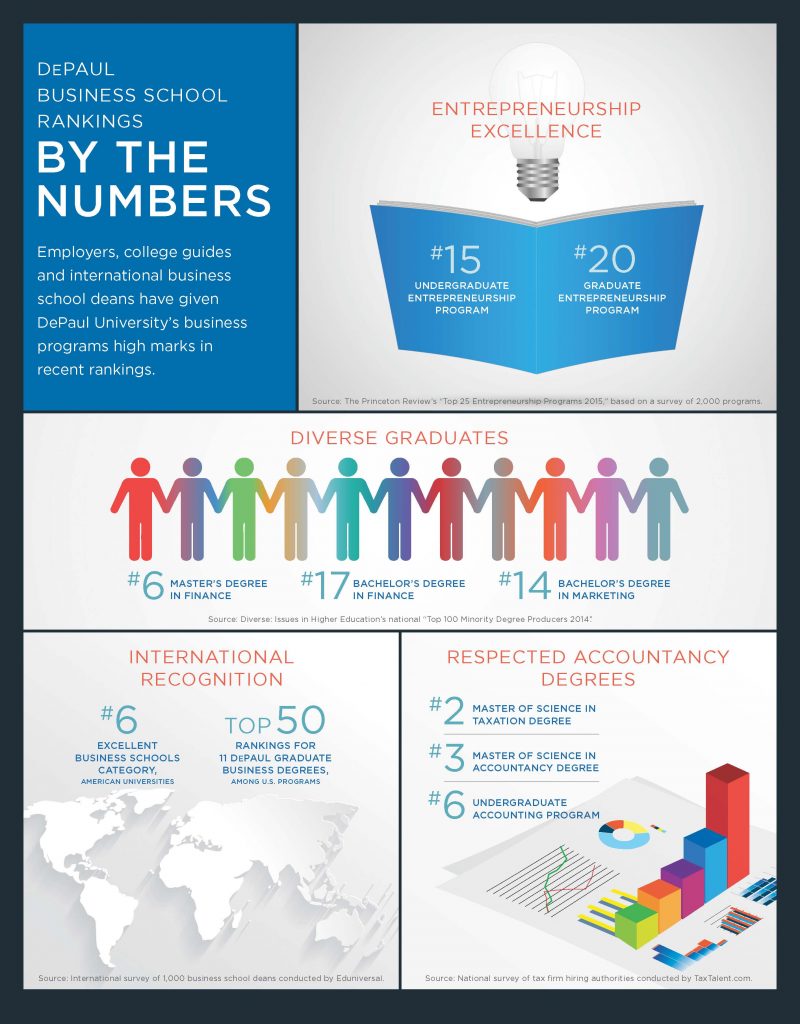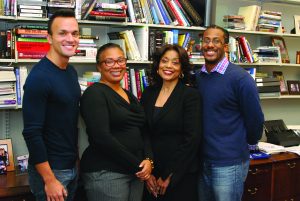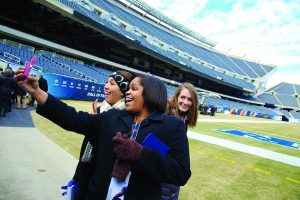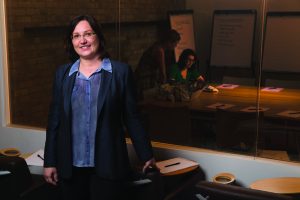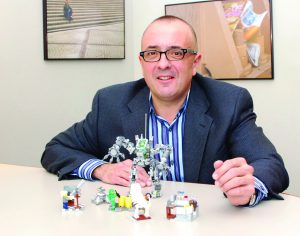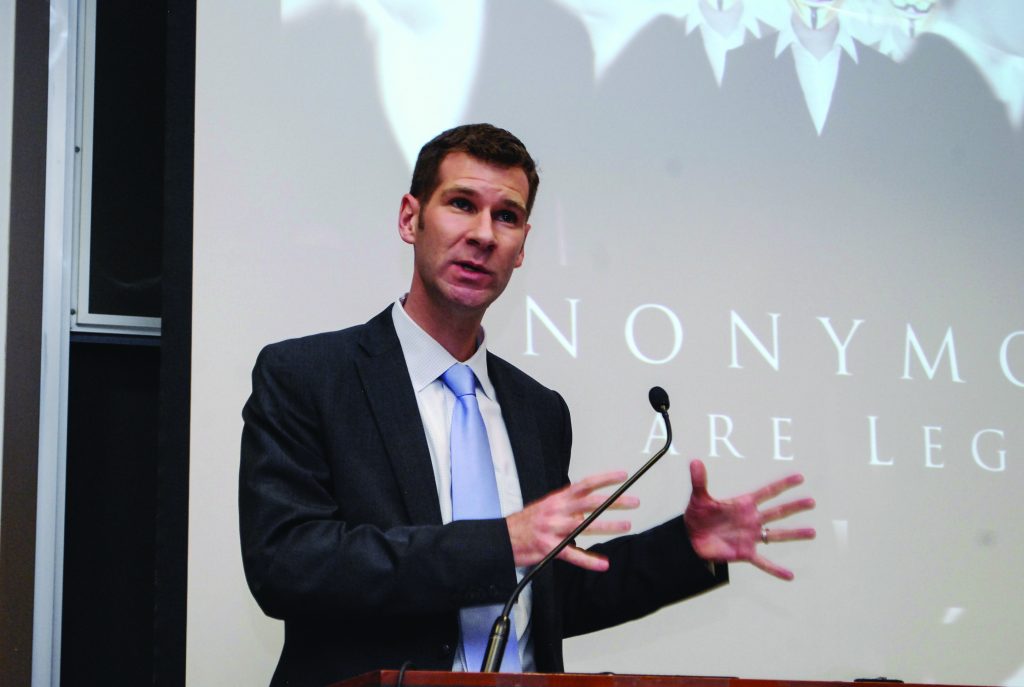By Lori Ferguson
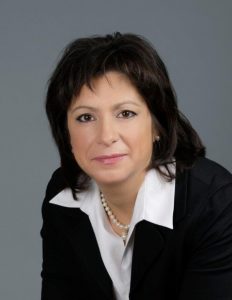 As Ukraine’s Finance Minister, Natalie Jaresko (BUS ’87) lives thousands of miles away from where she was born and much closer to the roots that she holds so dear. The daughter of Ukrainian immigrants, Jaresko was raised in the western suburb of Wood Dale, Ill. and later in Chicago’s Ukrainian Village neighborhood. She graduated from DePaul in 1987 with a BS in accountancy and political science and in 1989 earned a master’s degree in public policy from the Harvard Kennedy School of Government.
As Ukraine’s Finance Minister, Natalie Jaresko (BUS ’87) lives thousands of miles away from where she was born and much closer to the roots that she holds so dear. The daughter of Ukrainian immigrants, Jaresko was raised in the western suburb of Wood Dale, Ill. and later in Chicago’s Ukrainian Village neighborhood. She graduated from DePaul in 1987 with a BS in accountancy and political science and in 1989 earned a master’s degree in public policy from the Harvard Kennedy School of Government.
After a brief stint as economic section chief at the U.S. Embassy in Kiev, Jaresko served as president and CEO of the Western NIS Enterprise Fund, an initiative funded by the U.S. government through the USAID to assist Ukraine and Moldova in establishing sound economic policies and strong leadership. In 2006, Jaresko founded Horizon Capital, where she worked for the next eight years facilitating private investments in Ukrainian businesses. In December of 2014, Jaresko was tapped to be Ukraine’s finance minister, charged with creating a business environment in Ukraine that enables enterprise to flourish. In a recent interview, Jaresko discussed the role that her educational experience at DePaul played in shaping her future and her understanding of how to operate most effectively in a global economy.
In what ways did your educational experience at DePaul shape your future? Did it get you thinking about new ways of doing business or enhance your interest in working abroad?
My educational experience at DePaul was very rewarding. I became more inquisitive and more open to new ideas and perspectives. The environment at the liberal arts campus gave me the opportunity to debate argue, and challenge my own and others’ positions on issues. At the business school, I became more aware of how business operated, what it took to be successful, and of the interlocking parts of any successful business idea.
The opportunity to study abroad—in my case in Budapest—inspired me to work abroad, to work with international issues, and to work in the post-communist world. At the time, Hungary was still communist, but it was “reform” communism, or “goulash” communism. The cracks in the old system were already visible.
What, if any, international business experiences did you have while in school at DePaul?
I was studying abroad at a time when it was clear that an alternative to pure state-run communism was preferable. Still, we couldn’t yet see that the entire system would collapse not long afterward. The region quickly then turned to transition economics and the move to a free market economy within democratic principles. It was a heady, very exciting time in history.
What do you think are the most important things for young people entering the workforce to understand about operating in a global economy?
They must have cultural respect – this is especially important in today’s global economy. They must understand the competitive differences in different economies and how to benefit from them, and they must learn how to create a business environment that spurs entrepreneurship.
What qualities do you look for in those you hire?
First and foremost, I am looking for people who can communicate—oral and verbal communications are key. Next in importance for me is a person’s sense of responsibility and his or her willingness to take on responsibility; I am always looking for a sense of ownership. Of equal importance is the ability of a candidate to turn words and ideas into actions, to document a process, implement and follow up on it. In the end, deeds are most important.
How did your experiences growing up as the child of immigrants affect your outlook, and how has your background influenced your approach to business?
DePaul was a very welcoming place for immigrants – I went to school with many like me. There were a lot of immigrants and also students who were the first in their families to go to college. My classmates at DePaul appreciated their education and worked hard for it. People were more invested in their education. For me personally, I chose a major that I knew would translate into a job, i.e. accounting, which was important for my family. Certainty was important. I came from a family that fled communism and believed deeply in the free market, so DePaul, with its values, its principles, and its teaching excellence were all of great benefit to me. My experiences at DePaul led me to the Kennedy School of Government, which eventually led me to come to Ukraine – to apply those principles in the country of my roots.
Given the current situation in Ukraine, it must be challenging to conduct business. How do you stay focused and what education and/or experience do you draw upon to inform your decisions?
A critical task for our government, and my role in particular as finance minister, is to create a business environment that enables enterprise to flourish. Ukraine is rich in human resources, in natural resources, in strategic geographic location and more. The critical issue is putting those pieces of the puzzle together in an environment of rule of law, transparency, fairness and competition that will enable the greatest benefit from those resources. Tax policy, tax administration, banking stability, currency stability, access to markets, and prudent fiscal policy that does not fuel inflationary processes – all of these are part of my priorities. I am focused on helping turn our economy around and creating the conditions for this growth and prosperity.
